Sulzer pumps are customized to meet the unique requirements of a historic pumping station
Finding just the right pump for an application can be quite a challenge, especially when the building presents several constraints and there is an unusual electrical supply. Sulzer took on this challenge in New Orleans and updated a near antique installation with the latest in pumping efficiency and reliability.
Operated by the Sewerage and Water Board of New Orleans (SWBNO), the Oak Street Intake Pump Station is a critical link in the city’s water supply network. The station is one of two facilities that draw water from the Mississippi river and transfer it for treatment and onward distribution to homes as well as businesses across the city. Built-in the 1920s, the station’s three main pumps can each deliver up to 80 million gallons (363’000 m3) of water per day.
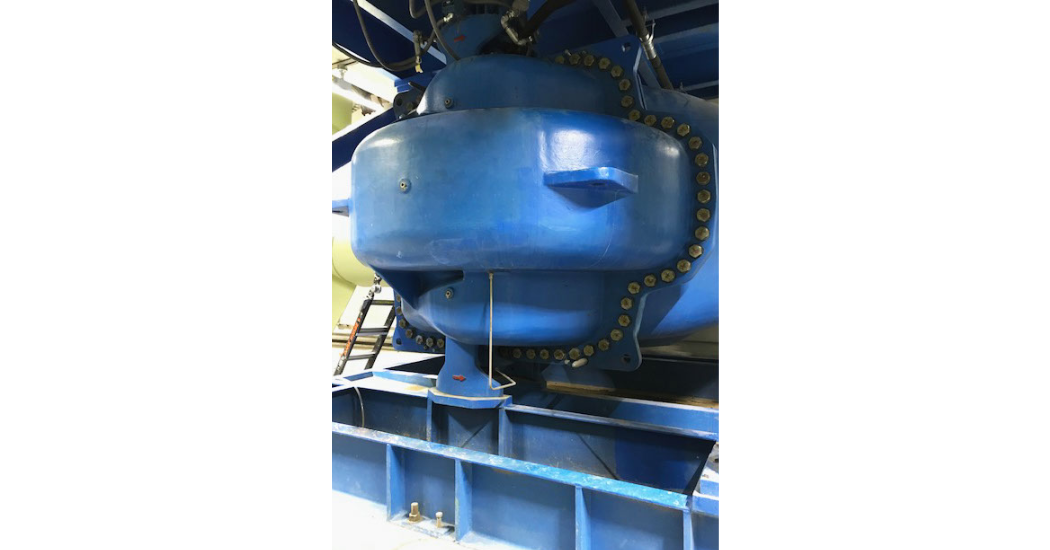
Sulzer designers created a special motor stand for the project, which had to fit the footprint of the original pumps
Unique challenges
After almost a century of service, the station’s original pumps were becoming unreliable, and sourcing spare parts was increasingly difficult. As part of a multi-year program to improve the performance and resilience of the city’s water system in the wake of Hurricane Katrina, SWBNO launched a project to upgrade the Oak Street facility and replace its pumps.
The job was unusually challenging because Oak Street Pump Station is on the National Historic Register, and all works had to be completed without modifications to the fabric of the building. After a long search for replacement pumps, SWBNO discovered that only Sulzer could provide a design with sufficient capacity that would fit in the footprint of the original units.
Sulzer’s engineering specialists worked with the project’s main contractor to complete the detailed design of the installation. Computational fluid dynamics software was used to create a pipework configuration that would ensure optimal flow conditions both upstream and downstream of the new pumps.
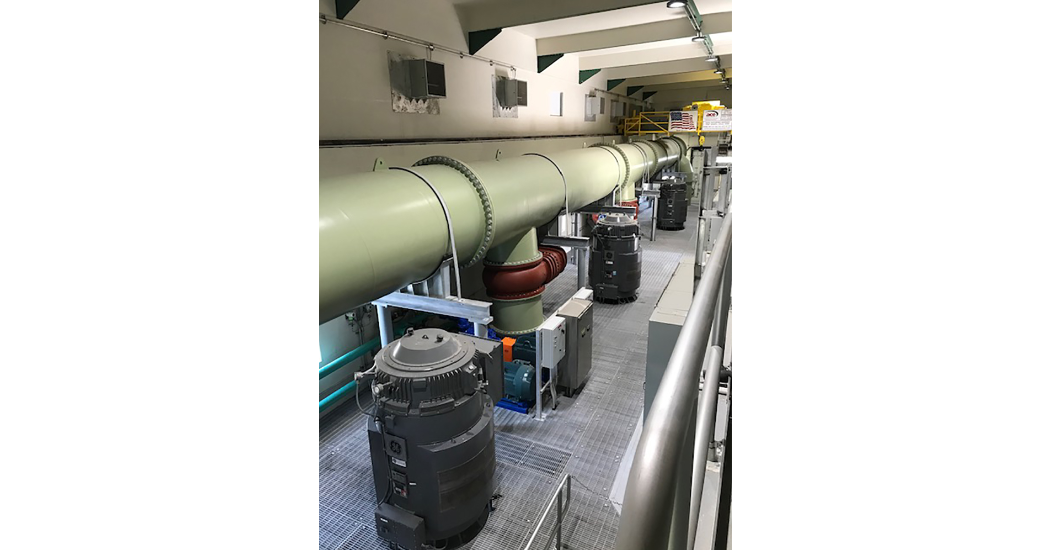
The drive motors and pumps were specifically designed to operate with the unusual 25 Hz local electrical supply
Bespoke design
Although the SMDV 1000-1030A pumps are a standard product, the units destined for New Orleans needed to be customized to suit the requirements of the project. As the renovation of the Oak Street site began, Sulzer pump experts in the U.S., Switzerland and China set about designing and building the single-stage, double suction, axially split pumps as well as their ancillary equipment.
The three pumps were manufactured at Sulzer’s plant in Dalian, China, together with the large cardan shafts necessary to take power from the motors at ground level to the pumps, which would be installed in the basement of the building. They were then shipped to Sulzer’s Portland facility in the U.S., where each unit was assembled and tested for 96 hours prior to installation.
One major challenge in this process was the need to source large 1’000 HP (750 kW) motors that would operate correctly using the Oak Street facility’s unusual 25 Hz on-site power supply. Since most motors in the U.S. are designed around a 60 Hz supply, no standard unit would provide the right combination of power and speed.
Eventually, Sulzer engineers solved the problem with a little lateral thinking. They found a motor design that could be wound to operate at 500 rpm from a 25 Hz supply, some 25% faster than the design speed of the pumps. Then they modified the impeller on each pump to enable it to deliver the required flow and head at the higher speed.
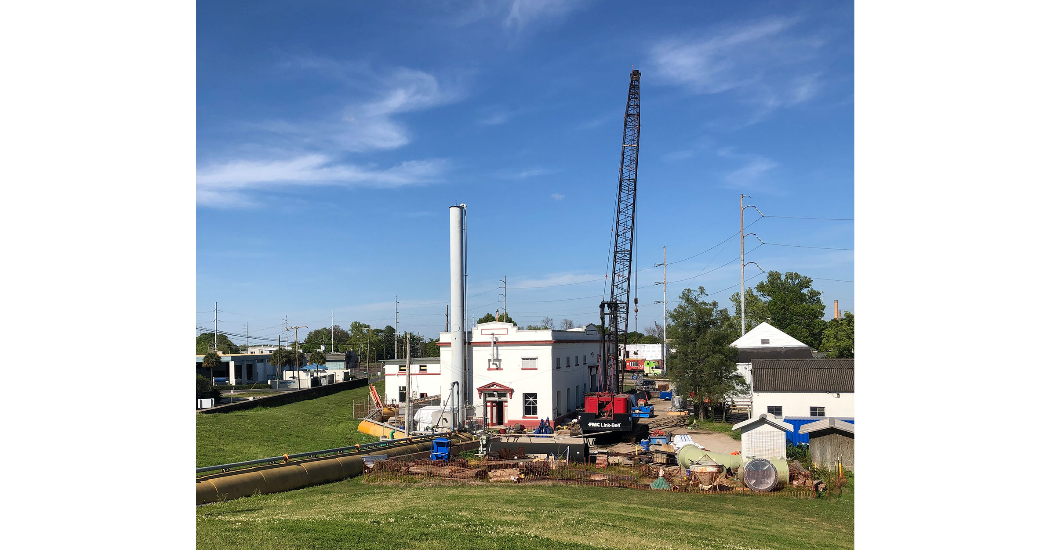
The Oak Street Intake Pump Station is a crucial link in New Orleans’ water supply and distribution to homes and businesses across the city
Installation challenges
Installing the new equipment required further creativity. Each Sulzer SMD 1000 – 1030 weighs 18 tons (16.3 tonnes), and the pumps, motors as well as stands all had to enter the Oak Street building through a 10.5 ft (3.2 m) square doorway. Inside, structural concrete beams made it impossible to use a conventional motor stand design.
Sulzer engineers in Switzerland created a special motor stand for the project, which had to fit the original footprint, withstand the stresses imposed by the motor, and be dismantled and reassembled inside the building. The installation team also prepared for the possibility of dismantling the pumps for installation, but ultimately were able to maneuver the machines through the doorway using two cranes, with only half an inch of room to spare.
With work on the Oak Street pump station now largely complete, the new Sulzer pumps have been tested in situ and are ready for the official start to operation. The new units are expected to provide much-needed reliability improvements for a vital part of the New Orleans water infrastructure, and thanks to modern VFD technology, they will provide the SWBNO with useful energy savings too.

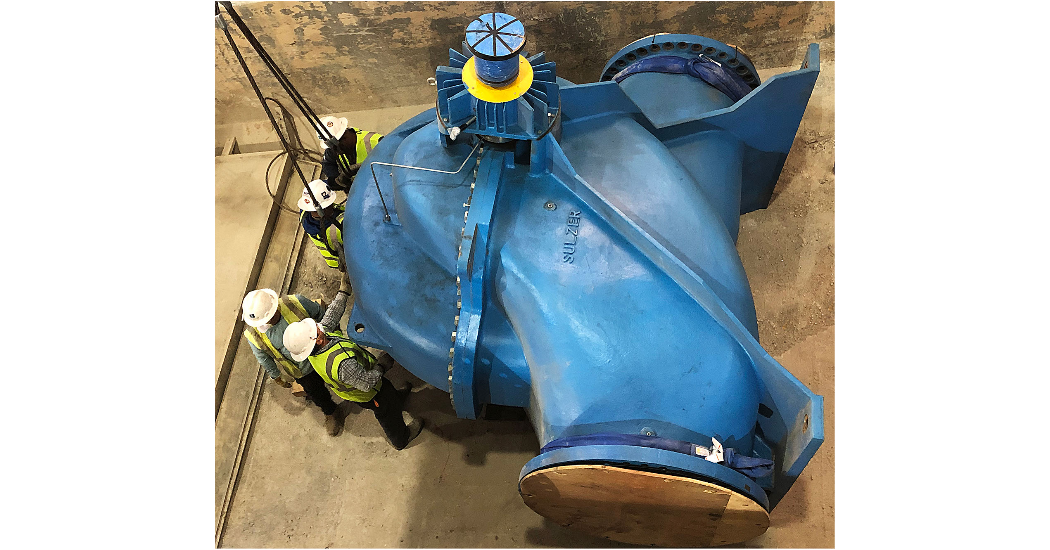

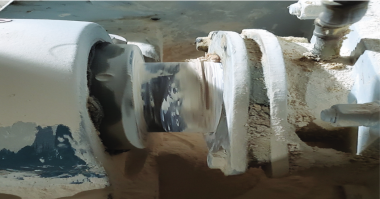
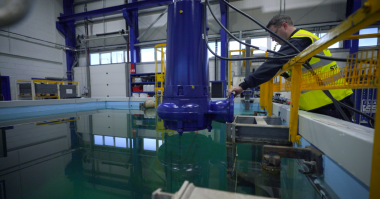
Comments